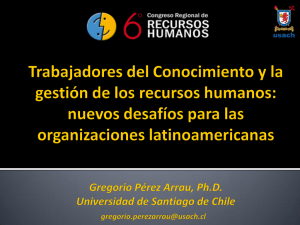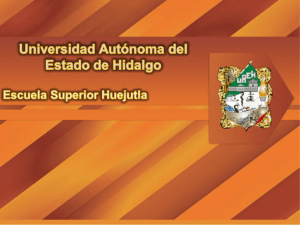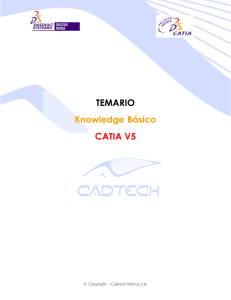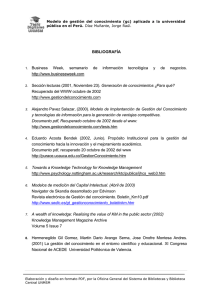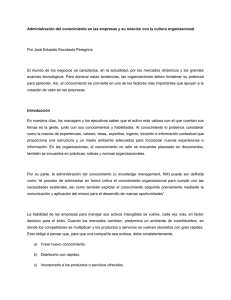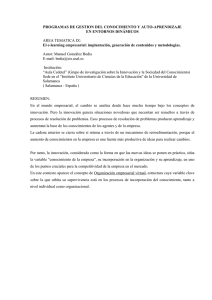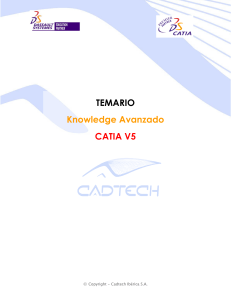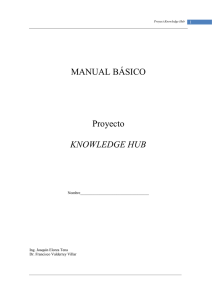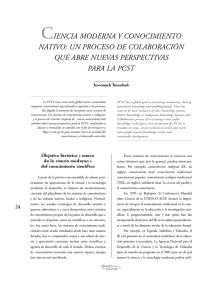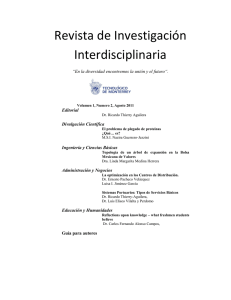Retenci´on del trabajador del conocimiento
Anuncio
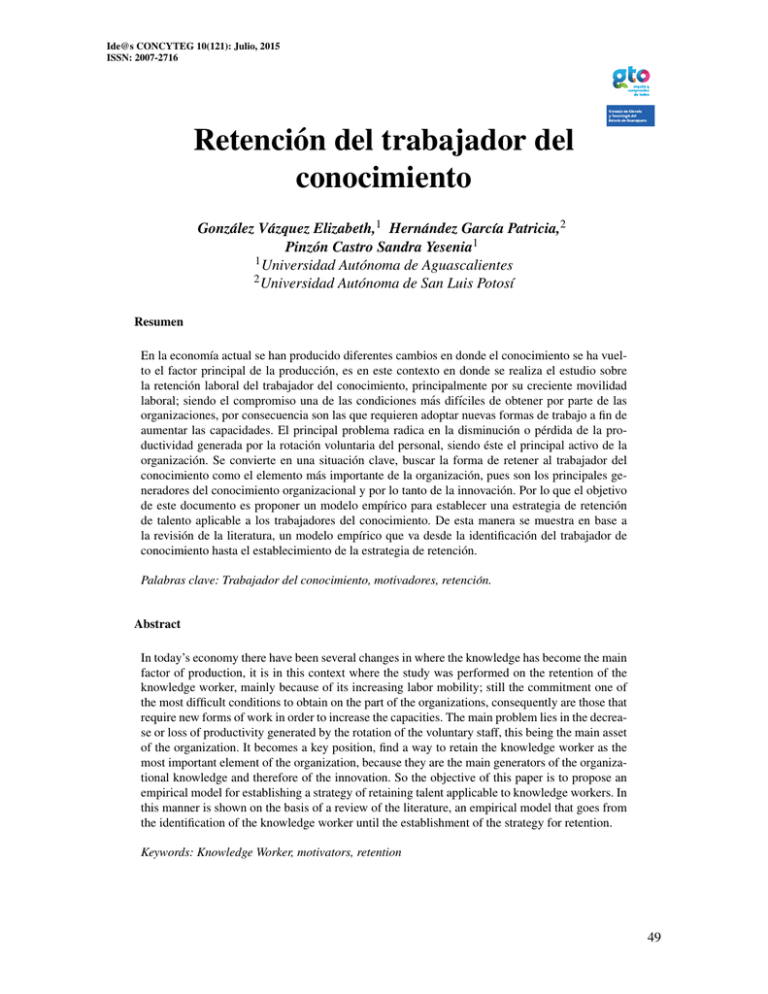
Ide@s CONCYTEG 10(121): Julio, 2015 ISSN: 2007-2716 Retención del trabajador del conocimiento González Vázquez Elizabeth,1 Hernández Garcı́a Patricia,2 Pinzón Castro Sandra Yesenia1 1 Universidad Autónoma de Aguascalientes 2 Universidad Autónoma de San Luis Potosı́ Resumen En la economı́a actual se han producido diferentes cambios en donde el conocimiento se ha vuelto el factor principal de la producción, es en este contexto en donde se realiza el estudio sobre la retención laboral del trabajador del conocimiento, principalmente por su creciente movilidad laboral; siendo el compromiso una de las condiciones más difı́ciles de obtener por parte de las organizaciones, por consecuencia son las que requieren adoptar nuevas formas de trabajo a fin de aumentar las capacidades. El principal problema radica en la disminución o pérdida de la productividad generada por la rotación voluntaria del personal, siendo éste el principal activo de la organización. Se convierte en una situación clave, buscar la forma de retener al trabajador del conocimiento como el elemento más importante de la organización, pues son los principales generadores del conocimiento organizacional y por lo tanto de la innovación. Por lo que el objetivo de este documento es proponer un modelo empı́rico para establecer una estrategia de retención de talento aplicable a los trabajadores del conocimiento. De esta manera se muestra en base a la revisión de la literatura, un modelo empı́rico que va desde la identificación del trabajador de conocimiento hasta el establecimiento de la estrategia de retención. Palabras clave: Trabajador del conocimiento, motivadores, retención. Abstract In today’s economy there have been several changes in where the knowledge has become the main factor of production, it is in this context where the study was performed on the retention of the knowledge worker, mainly because of its increasing labor mobility; still the commitment one of the most difficult conditions to obtain on the part of the organizations, consequently are those that require new forms of work in order to increase the capacities. The main problem lies in the decrease or loss of productivity generated by the rotation of the voluntary staff, this being the main asset of the organization. It becomes a key position, find a way to retain the knowledge worker as the most important element of the organization, because they are the main generators of the organizational knowledge and therefore of the innovation. So the objective of this paper is to propose an empirical model for establishing a strategy of retaining talent applicable to knowledge workers. In this manner is shown on the basis of a review of the literature, an empirical model that goes from the identification of the knowledge worker until the establishment of the strategy for retention. Keywords: Knowledge Worker, motivators, retention 49
